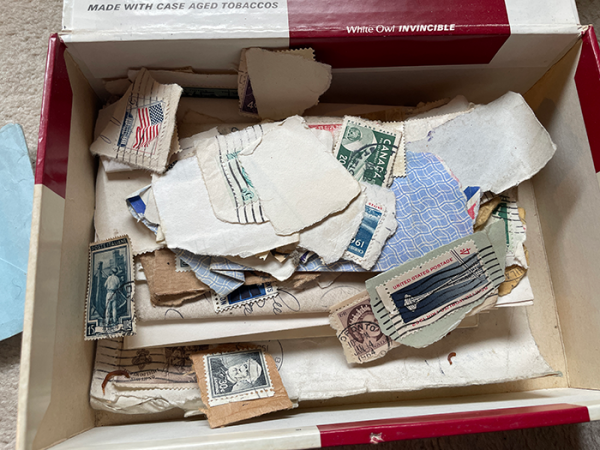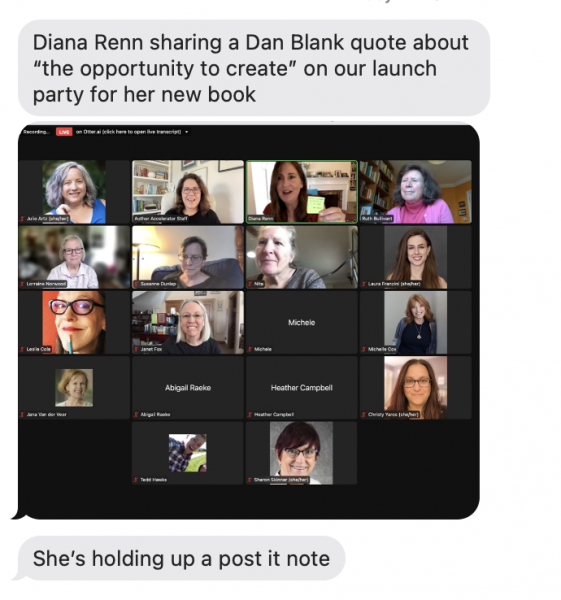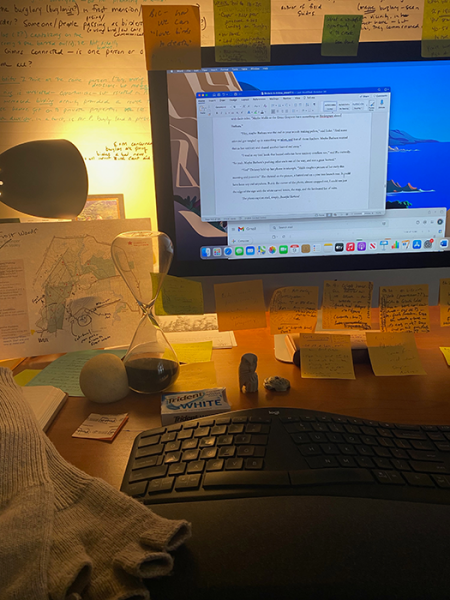Many writers and creators I speak with struggle to understand how they can build a presence in a crowded marketplace. I’ve worked with thousands of writers through the years, and find that their are common challenges that can block someone’s progress. This idea of knowing how to share what you create and why. I mean, imagine if you:
- Knew exactly how to describe who you are as a writer and creator.
- Knew how to create an infinite amount of content showcasing what you create and why.
- Knew what to share that feels unique to you and compelling to others.
- Knew how to get engagement from others, instead of feeling as though you are shouting into a void.
- Knew where you fit within the marketplace, and were also able to carve out your own little corner of it.
- Felt proud of what you share, without worrying that you are seeking attention or gloating.
- Felt comfortable having your voice, your identity, be public.
- Felt a total and complete permission to share.
- Felt safe throughout the entire process.
The answers to these challenges are never the latest trend, a hashtag, learning about some secret social media button, a TikTok dance, Amazon ads, or hiring a VA to just do it all for you. (although all of those things could have a place within a larger strategy.)
If you have struggled with any of the items above, I want to encourage you to develop the most powerful tool in your entire platform and presence as a writer: Defining your voice. Embracing your voice. Sharing your voice.
What is voice? It is how you show people what you care about. Is it how you share. It is how you show up for others. It is how you engage. It is how you have a presence in people’s lives.
This is my obsession.
Recently I’ve been delving back into my hobby of researching my family’s history. The research I’ve been doing and conversations I’ve been having have focused more on my two grandfathers, both of who died before I was even born. I’ve been thinking about their voices. What they sounded like. How they talked. Their interests. Their hopes. Their fears.
I took out one of the boxes I had in storage that contains my maternal grandfather’s stamp collection:

My mother grew up in a tenement apartment in New York City’s lower east side. The four of them slept in one bedroom, the tub was in the kitchen, and the single bathroom was accessible through the hallway outside their apartment.
Yet, there is this stamp collection, torn off of letters that came to family, friends, and colleagues. My grandfather clearly asked everyone he knew, that if they received a letter with a stamp from an unusual place, to save the envelope for him. I have batches of stamps he collected in the 30s, 40s, 50s, and 60s, until a car accident took his life in 1965.
This hobby likely gave him excitement, inspiration, education, and way to create little unexpected bright spots throughout his week. His entire life, from high school on, he worked one job, at a bakery. He was a slicer, and eventually became a driver delivering bread around New York City. He would have had a wide network of people through all the restaurants he met with each day. I have envelopes from The Russian Tea room in the 1950s, and many others. Today the stamps likely have no intrinsic value. Their value is in their story. And that story is my grandfather.
Through his collecting, he would have created thousands of conversations with people. He would have shared moments of discovery with them. He would have tied together a wide network of people around his interests. His voice would have done all of this and more.
I know that many writers are concerned that having a platform is a waste of time: sending a newsletter to a tiny list. Posting to Instagram and getting a handful of likes. Feeling as though you are sharing, but no one is listening.
If you are reading this, you are a writer or artist or creator. You have something to say in your creative work. I want to encourage you to double down on that. Not with a feeble attempt, but with vigor. To know that this is an opportunity you have right now to create. I want to encourage you to raise your own volume. To be heard because your voice is part of your craft. It is why you are driven to create and share.
The other day I got a text from my friend Jennie Nash:

I reached out to Diana and asked her about this. She said that she had read one of my newsletters and really resonated with this quote: “How fortunate we are to have the opportunity to create.” She says:
“I slapped that quote up on my monitor front and center to anchor me! It was, and continues to be, a very helpful way to bring me back to a sense of purpose, to remind myself that it’s a privilege to write and sell books. It actually puts a smile on my face and centers me before I get to work.”

Your voice is an opportunity to create something special. Not just for yourself, but for anyone who comes in contact with you or your creative work. Honing your public voice takes time. It’s not uncommon for a writer to mention that their dream is to be able to share as Ira Glass does on This American Life. There is a wonderful 4-part video series where he discusses the long process of developing his own voice. He describes how hard a team of people work to create each story in their program, and how many stories they spend hours and hours developing, they never air because they were deemed not “good enough.” Go on YouTube and search for “Ira Glass on Storytelling” to find the video series.
Your voice is your own. It can be filled with generosity, with kindness, and with purpose. You get to define that.
Thanks.
-Dan
